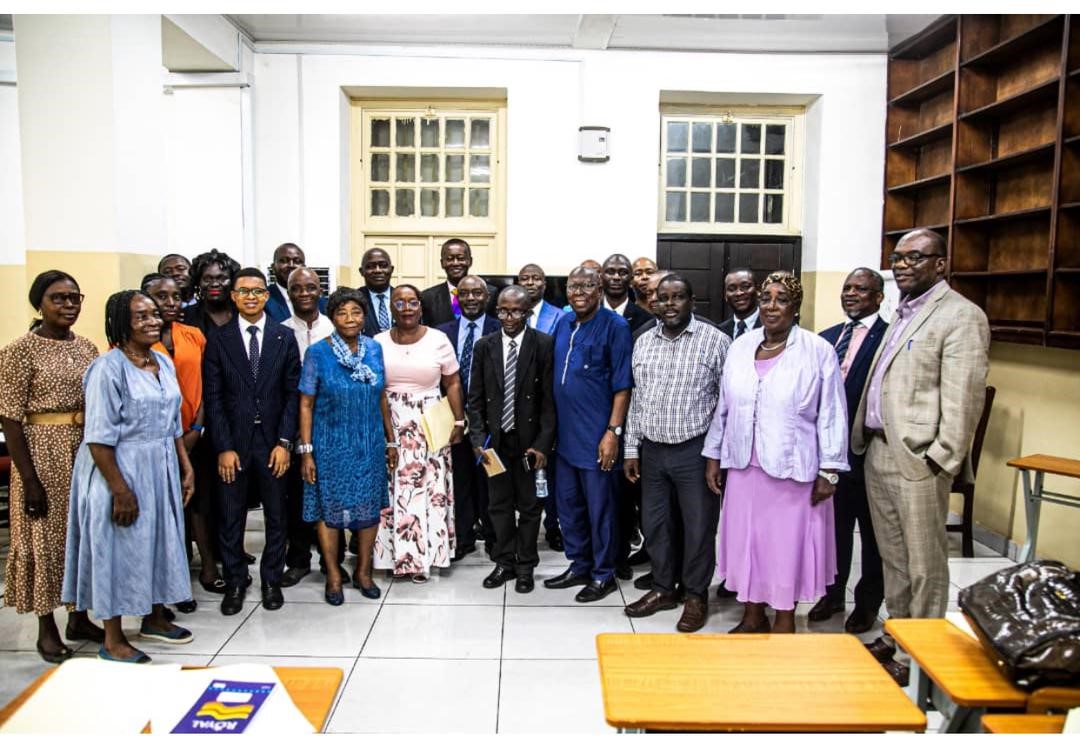AYV News, August 16, 2024
The Judiciary of Sierra Leone through the Judicial and Legal Training Institute (JLTI) has ended a capacity training for eighteen Justices of the Peace commonly called JP’s ahead of the commencement of sitting at both the Pademba Road and Ross Road Magistrates Courts in Freetown.
The training, according to the Acting Chief Justice, Hon. Justice N. C Browne-Marke, is aimed at revamping the system of Justices of the Peace in the administration of justice and to ensure that they are effective and efficient in dispensing justice at their level.
Opening the training, the Ag. Chief Justice disclosed that there is urgent need for Justices of the Peace to support the Judiciary and the country by presiding over certain cases, and bat the same time reducing the pressure on Magistrates. This will ensure that the institution achieves one of its core goals of expeditious justice for all in Sierra Leone.
He revealed that the system of JP’s started in England around 1461 in which the King mandated senior citizens with proven track records to maintain community peace through adjudication rather than taking them to the King’s Court. He said to be a JP does not necessarily require a degree or certificate in law but rather people with experience who can also display judicial fairness.
Addressing the JPs, the Ag. Chief Justice said: “besides age, I know you are experienced people with proven track records. And I am certain that you have settled disputes amicably either in your respective communities or institutions you have worked for and I believe you will employ the same to discharge judicial fairness.”
Presenting key topics including the introduction to the Sierra Leone Court System, Justice of the Peace as an Adjudicator and the Procedures and Processes at the JP’s Court, Hon. Justice Monfred Sesay (JA) explained the Court System in Sierra Leone has a pyramid structure in the which the Local Court at its bottom, followed by the Magistrate’s Court or District Appeals Court, the High Court, the Court of Appeal and finally the Supreme Court. He said Local Court is not permitted by law to operate in the Western Areas but they are applicable after Songo while the District Appeals Court is also applicable in the provinces. He beseeched them to record and maintain records all proceedings.
On the Procedure and processes at the JPs Court, Criminal cases and Summary offenses, Principal Magistrate, His Worship Sahr Kekura encouraged JP’s to read through the respective files before going to Court. He went on to educate them on the difference between criminal cases in which the Inspector General of Police is the Complainant and in which a lawyer can associate with the police if the need arises on the one hand and private criminal summons in which the complainant’s lawyer prosecutes the defendant.
Magistrate Kekura admonished the assembled the JPs to be mindful of the words acquitted and discharged which means that the matter has come to an end as there is no evidential ground for the accused or defendant to be convicted. Discharge he said is not the end of the matter as same has the possibility of being brought back to court.
The Master and Registrar of the High Court, Elaine Thomas-Archibald admonished them to employ proper case management mechanisms which she said was a vital tool for expeditious trials. “If keeping and managing proper records is ignored by just rushing into cases, it will affect expeditious trials and will likely lead to wrongful convictions,” she said.
On Judicial Code of Conduct and Ethics for JP’s, Hon. Justice Reginald Fynn (JA) told the participants that they are now judicial staff and are bound by the Code of Conduct of the Judiciary which require them to be impartial at all times. He warned them to be mindful of corruption as it targets people in influential positions, adding that they should not abuse their office or position or embark on wrongful judgement.
One of the participants, Memunatu B. Sesay said the training was not only timely but needed. She assured the management of the Judiciary that they will be committed to a fair and expeditious justice for all in Sierra Leone.


